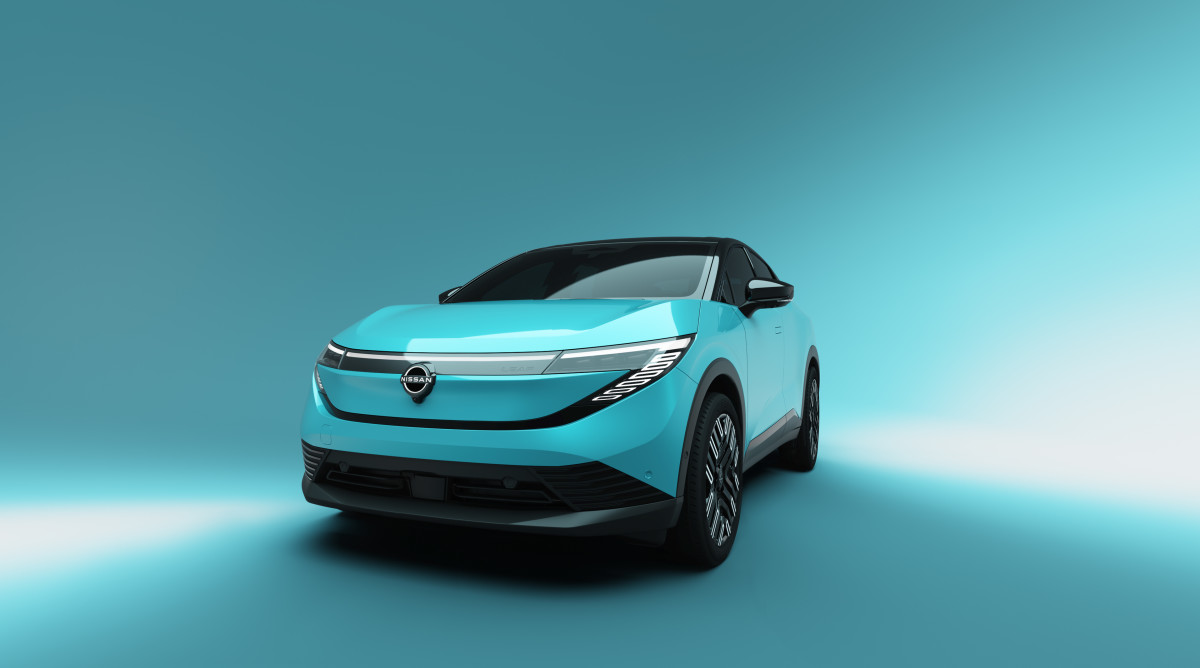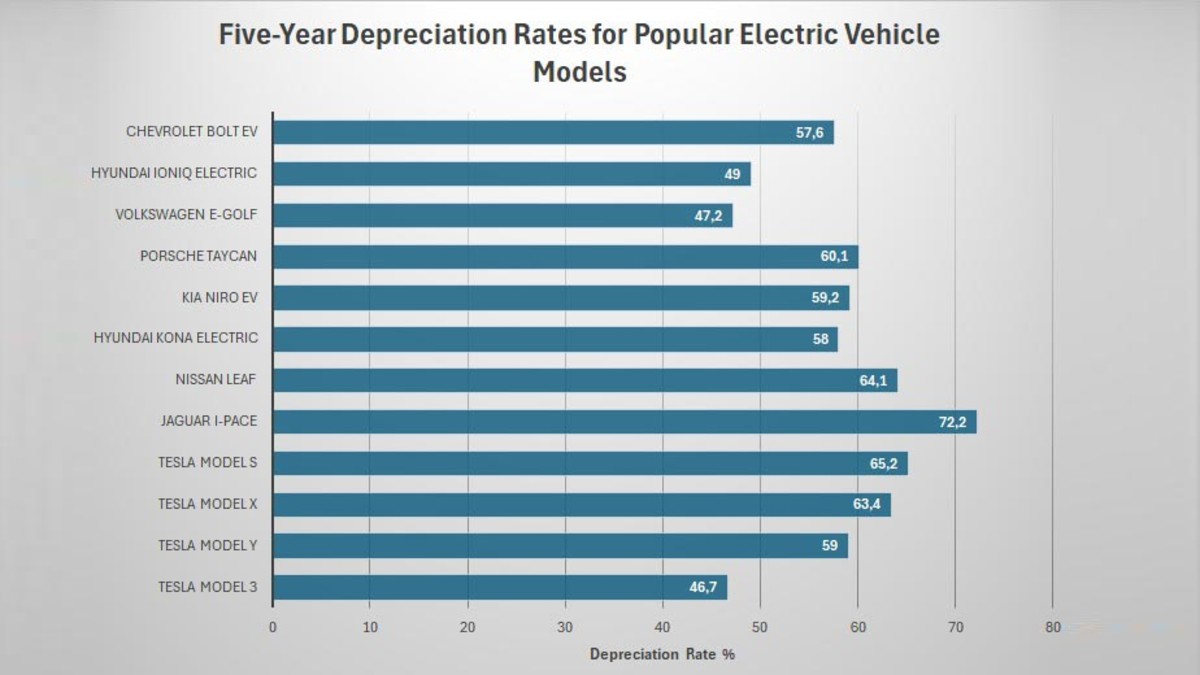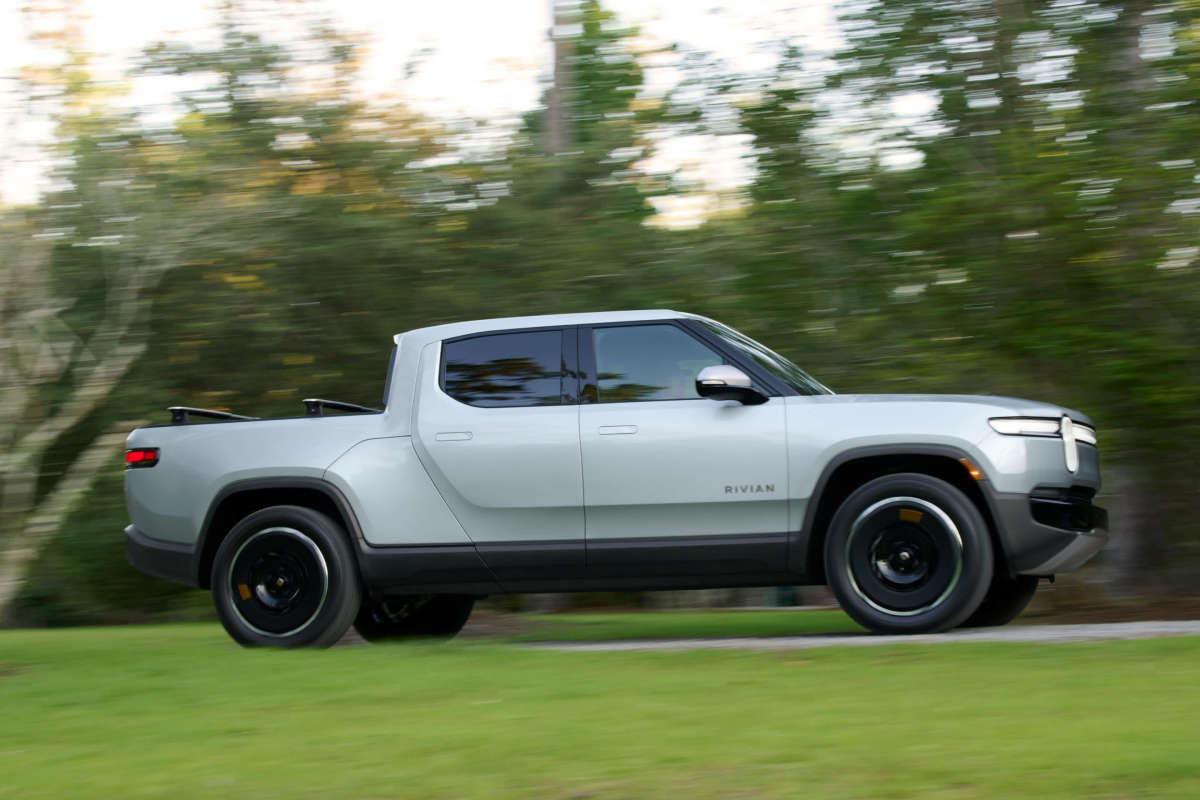Understanding EV Depreciation

Electric vehicles, or EVs, have been gaining traction in recent years, but their depreciation rate is a topic of heated discussion. According to a study from March 2025 by iSeeCars, electric vehicles lose about 58.8% of their value over a five-year period, compared to all vehicles, including gas, hybrid, and diesel, which lose around 45.6% on average. This means EVs depreciate approximately 28.9% faster than their gasoline counterparts in the same timeframe.
Model-Specific Depreciation

Some EV models are hit harder than others when it comes to losing value. For instance, the Tesla Cybertruck saw a significant drop, losing about 37% of its $100,000 value within a year. After approximately 19,600 miles and 12 months, it was valued around $63,100.
- Rivian R1T: While it holds value better than some, it still loses about 29% in two years and 52.8% over five years.
- Nissan Leaf: Witnesses a 64.1% drop in five years, much higher than the average gas vehicle.
- Hyundai Kona Electric: Suffers a five-year depreciation of 58%.
- Kia Niro EV: Loses 56.5% of its value in five years.
Reasoning Behind the Decline

- Technology Turnover: Rapid advancements in battery and software technology make older models feel dated quickly.
- Tax Credits: The $7,500 federal tax credit for EVs applies only to the first owner, effectively reducing resale allure.
- Market Saturation: A flood of off-lease EVs increases supply, pushing down prices.
Notable Losses

- Jaguar I-Pace: Loses a whopping 72.2% in five years.
- Tesla Model Y: Although a bestseller, it depreciates by 53.4% after five years.
- Tesla Model S: Experiences a hefty 65.2% depreciation over five years.
On average, about half of all EV models lose around 59% of their value by year five. While models like the Hyundai Kona Electric and Volkswagen e-Golf retain more of their value—around 58% and 53%, respectively—the Jaguar I-Pace and Tesla Model S see steeper declines.
Avoiding the Depreciation Trap
- Long-Term Commitment: Spreading the depreciation over a longer period can lessen the yearly financial hit.
- Leasing Benefits: Leasing can protect against sharp depreciation, with many EV leases maintaining a residual value of 40-50% after three years.
- Consider Hybrids or Gas: Hybrids and traditional gas cars experience slower depreciation, at around 40.7% and 45.6% over five years, respectively.
While EVs are tempting due to their cutting-edge technology and environmental benefits, their resale value often doesn’t keep pace with traditional vehicles. Whether holding onto a beloved EV, leasing to mitigate loss, or opting for a hybrid or gasoline model for better resale potential, it’s wise to keep these factors in mind.
Tesla Model Y Deals
Pacifica Celebrates 100
Tesla Safety Concerns
Kia K5 Lights Recall
Oklahoma Plate Uproar